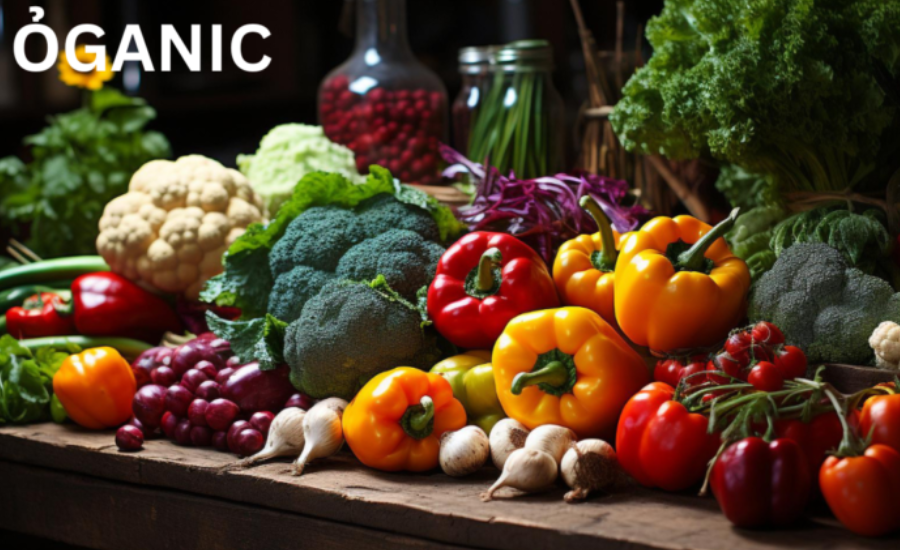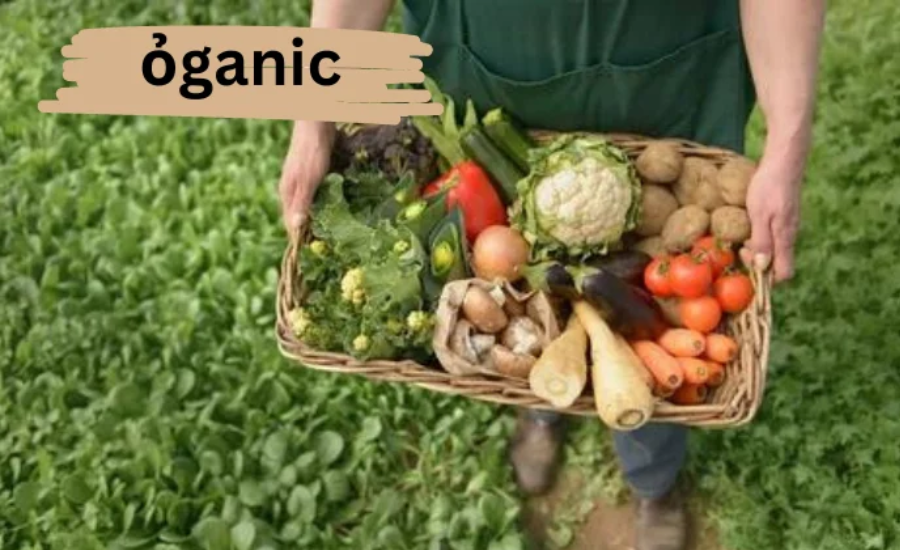The concept of “oganic” has surged in popularity, embodying a lifestyle centered on natural, chemical-free goods and practices. Beyond mere trendiness, opting for oganic products reflects a profound dedication to fostering healthier lifestyles and promoting environmental sustainability. This shift signifies a broader movement towards conscientious consumerism, where individuals prioritize products that align with their values of purity and ecological responsibility.
Exploring the realm of oganic living reveals a multifaceted landscape rich with insights and implications. It encourages individuals to consider not only the immediate benefits of chemical-free consumption but also the long-term impacts on personal well-being and environmental harmony. Making informed choices about integrating oganic products into daily life involves understanding these complexities, ensuring that each decision contributes positively to both personal health and global ecological stewardship.
Understanding Oganic
The term “ỏganic” is used to describe farming practices and processing methods that meet strict criteria and guidelines.These practices are meticulously regulated by certification bodies to ensure that products labeled as ỏganic a.re cultivated without the use of synthetic pesticides, fertilizers, or genetically modified organisms (GMOs). In the United States, adherence to these standards is indicated by the USDA Oganic seal, providing consumers with assurance regarding the purity and integrity of the products they choose.
Choosing ỏganic products signifies a commitment to supporting farming practices that prioritize environmental sustainability and consumer health. By opting for ỏganic goods, consumers contribute to a broader movement promoting cleaner, more natural agricultural methods. This choice not only aligns with personal health goals but also supports agricultural systems that strive to minimize chemical inputs and preserve ecological balance for future generations.
Evolution and Impact of Oganic Farming Practices
In the early 20th century, the foundations of oganic farming took root as farmers became increasingly aware of the detrimental effects of chemical fertilizers and pesticides on both the environment and human well-being. This growing awareness spurred the evolution of agricultural practices focused on enhancing soil vitality, preserving biodiversity, and maintaining ecological equilibrium. Over time, oganic farming has emerged as a thriving sector within agriculture, propelled by rising consumer preferences for products cultivated through sustainable methods that prioritize natural processes and environmental stewardship.
The oganic farming industry continues to expand robustly today, buoyed by heightened consumer awareness and demand for products that align with principles of health and sustainability. This industry growth not only reflects a shift towards more conscientious consumer choices but also underscores a broader commitment to fostering agricultural practices that support long-term ecological resilience and human health benefits.
Health Benefits of Choosing Oganic Products

Choosing oganic products is often driven by the perceived health benefits they offer, particularly in terms of nutrition. Studies indicate that oganic fruits and vegetables can contain higher levels of antioxidants, vitamins, and minerals compared to their conventionally grown counterparts. These nutrients play vital roles in promoting overall health and reducing the risk of chronic diseases, making oganic choices appealing to health-conscious consumers seeking optimal nutrition.
Another compelling reason to opt for oganic products is the reduced exposure to synthetic chemicals commonly used in conventional farming. Pesticides and fertilizers applied in non-oganic agriculture can leave residues on food, potentially posing health risks, especially for sensitive groups like children, pregnant women, and individuals with compromised immune systems. By choosing oganic, consumers minimize their intake of these chemicals, supporting a safer and more natural approach to food consumption.
Additionally, emerging research suggests that oganic foods may contribute positively to gut health. The absence of synthetic chemicals in oganic produce allows beneficial microbes to flourish, potentially enhancing the diversity and balance of the gut microbiome. A healthy gut microbiome is essential for efficient digestion, strong immunity, and overall well-being, underscoring yet another reason why consumers are increasingly drawn to oganic options for maintaining digestive health and overall vitality.
Environmental Benefits of Oganic Farming Practices
Organic farming practices play a crucial role in promoting biodiversity within agricultural ecosystems. By cultivating a diverse range of plants, supporting natural pest control mechanisms, and nurturing habitats for beneficial organisms, organic farmers contribute to vibrant and resilient ecosystems. This biodiversity not only helps maintain ecological balance but also supports crucial pollinators such as bees and butterflies, essential for the reproduction of many crops and wild plants.
A cornerstone of organic farming is its emphasis on soil health and conservation. Unlike conventional agriculture that relies heavily on synthetic fertilizers, organic farming utilizes techniques like crop rotation, cover cropping, and composting to enhance soil fertility and structure naturally. This approach not only improves the nutritional quality of crops but also facilitates carbon sequestration in the soil, thereby playing a role in mitigating climate change impacts through sustainable land management practices.
Furthermore, organic farming significantly benefits water quality by minimizing the risk of contamination from synthetic pesticides and fertilizers. These chemicals, commonly used in conventional agriculture, can leach into waterways, posing threats to aquatic life and ecosystems. In contrast, organic practices reduce such risks by promoting soil health and employing natural pest control methods, thereby safeguarding water quality and supporting the health of aquatic environments.
Getting Started: Transitioning to Oganic Living

Embarking on a journey towards organic living doesn’t have to be daunting. It’s beneficial to start small by prioritizing key products known as the “Dirty Dozen,” which are fruits and vegetables most susceptible to pesticide contamination. By gradually incorporating these organic choices into your diet, you can reduce exposure to harmful chemicals while easing into a healthier lifestyle that prioritizes natural, sustainable practices.
Cultivating Sustainability: Embracing Gardening
An enriching aspect of organic living is cultivating your own produce. Whether through container gardening on a balcony or participating in community garden plots, growing your own organic vegetables and herbs empowers you to oversee their cultivation firsthand. This hands-on approach ensures that your food is grown without synthetic pesticides or fertilizers, aligning with organic principles and providing you with fresh, nutritious harvests.
Supporting Sustainable Practices: Choosing Oganic Brands and Farmers
Supporting organic brands and farmers dedicated to sustainable agriculture is crucial for promoting a healthier food system. Many local farmers’ markets and grocery stores now offer a diverse selection of organic products, allowing consumers to make informed choices that benefit both personal health and environmental stewardship. By opting for organic options, you contribute to the demand for sustainable farming practices that prioritize soil health, biodiversity, and ecological sustainability.
Empowering Change: Educating and Advocating
Education plays a pivotal role in advocating for organic living and its associated benefits. Take the initiative to educate yourself about the advantages of organic farming and share this knowledge with others in your community. By raising awareness and fostering conversations about sustainable practices, you empower individuals to make informed decisions that support environmental conservation and promote a more resilient food system built on organic principles
Economic and Social Implications of Oganic Consumption

The affordability of organic products remains a significant consideration for those contemplating an organic lifestyle. The higher cost is often attributed to the labor-intensive methods of organic farming, which typically involves smaller-scale production and rigorous certification requirements. Despite these initial financial barriers, many individuals and families recognize the long-term advantages of organic choices, including improved health outcomes and reduced environmental impact. These benefits can outweigh the upfront costs, making organic products a worthwhile investment in personal well-being and ecological sustainability over time.
A key aspect of supporting organic practices involves backing local and small-scale farmers who adhere to sustainable agricultural methods. By purchasing organic goods from these producers, consumers not only obtain high-quality, environmentally friendly products but also contribute to the vitality of local economies. This support helps preserve rural landscapes, fosters community resilience, and bolsters food security by promoting diversified, sustainable farming practices that benefit both producers and consumers alike.
However, accessibility remains a critical issue in the organic food landscape. Many individuals and communities face challenges accessing organic products due to geographical limitations, economic constraints, or logistical hurdles. Addressing these disparities is crucial for ensuring equitable access to healthier, more sustainable food options. Efforts to lower costs, expand distribution networks, and educate consumers about the benefits of organic farming can help bridge these gaps, making organic products more accessible to a broader demographic and fostering greater inclusivity in the organic food movement.
May You Also Like To Read: Pichuneter
Future of Ỏganic
The landscape of organic farming is evolving with promising innovations aimed at enhancing efficiency and sustainability. Ongoing research and technological advancements, such as precision farming techniques and organic pest management strategies, are empowering farmers to increase yields while minimizing resource inputs. Policy advocacy plays a pivotal role in shaping the future trajectory of the organic industry. Efforts to influence policy include advocating for government incentives that support organic farming, advocating for stricter regulations on pesticides, and securing increased funding for research and development in organic agriculture. By mobilizing support for these initiatives, consumers and stakeholders can contribute to creating a more robust and equitable food system that prioritizes environmental stewardship and public health.
The impact of organic farming extends beyond local communities to global dimensions. Embracing organic practices on a global scale holds significant potential for addressing pressing global challenges such as climate change, biodiversity loss, and food insecurity. By promoting organic agriculture worldwide and fostering international collaboration, stakeholders can leverage shared knowledge and resources to advance sustainable farming practices that benefit ecosystems, communities, and future generations globally.
Conclusion
In conclusion, organic farming represents a pivotal shift towards sustainable agriculture, emphasizing natural methods that benefit both human health and the environment. Opting for organic products helps uphold agricultural methods that enhance soil vitality, preserve diverse ecosystems, and safeguard water resources. This movement not only offers nutritional benefits and reduces exposure to harmful chemicals but also fosters resilience against climate change and contributes to global efforts in conservation. Embracing organic living is not just a personal choice but a collective commitment to a healthier future for our planet and future generations.
FAQs
Q1. What does “oganic” mean in the context of farming?
A. “Oganic” farming refers to agricultural practices that prioritize natural methods and avoid the use of synthetic chemicals such as pesticides and fertilizers. It involves techniques like crop rotation, composting, and biological pest control to enhance soil health and preserve biodiversity.
Q2. What are the benefits of choosing organic products?
A. Organic products are perceived to offer higher nutritional value due to increased levels of antioxidants, vitamins, and minerals. They also contribute to environmental sustainability by reducing chemical runoff into waterways and supporting biodiversity.
Q3. How does organic farming contribute to environmental sustainability?
A. Organic farming promotes soil health through natural fertilization methods and helps mitigate climate change by sequestering carbon in the soil. It also protects water quality by minimizing pollution from synthetic chemicals, thus supporting healthier ecosystems.
Q4. What are some challenges associated with organic farming?
A. Challenges include higher initial costs due to labor-intensive practices and certification requirements. Accessibility to organic products can also be limited, especially in areas with fewer organic farming initiatives.
Q5. How can individuals support organic farming practices?
A. Consumers can support organic farming by purchasing organic products, advocating for policies that incentivize organic farming, and supporting local farmers committed to sustainable agricultural practices.
Read Next: Celebz Wave

